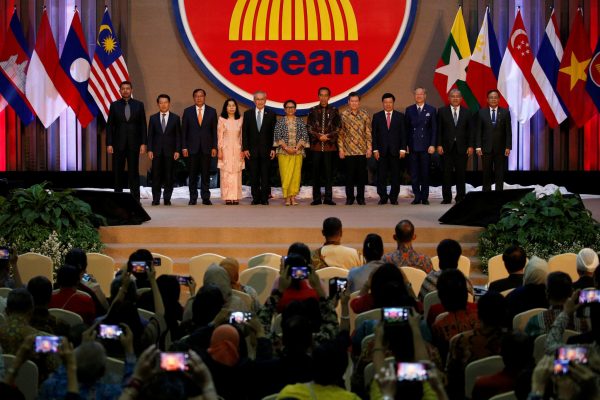A key motivation behind the document are concerns in ASEAN about deepening ‘mistrust, miscalculation, and patterns of behaviour based on a zero-sum game’ that result from major power rivalry. As much as the ‘Outlook’ seeks to provide an ASEAN response while noting the grouping’s ‘centrality’, it remains short on actionable steps and avoids critical issues such as ASEAN’s growing internal divisions in the face of major power frictions.
The ‘Outlook’ sketches a rough roadmap that leaves difficult but crucial issues unaddressed. It presents a six-part approach to the Indo-Pacific: rationale for the document, ASEAN’s outlook, objectives, principles, areas for cooperation, and an openness to discussing mechanisms. The document specifically lists maritime cooperation, connectivity, meeting UN sustainable development goals, and economic and technical cooperation as four areas for collaboration. In this regard, the ‘Outlook’ is — in its own words — ‘a guide for ASEAN’s engagement in the Asia Pacific and Indian Ocean regions’.
The text raises questions about how ASEAN and its members intend to achieve the visions they penned, including mediating the intensifying security dilemmas that now grip major powers active in the Indian and Pacific oceans. ‘ASEAN Way’ or not, formulas for long-term cooperation involve some attempt to resolve information, collective action, coordination, and commitment problems.
Insufficient information can allow for miscalculation, making suboptimal choices, and foregoing opportunities. Collective action problems arise when the individual costs to cooperation prevent actors from working together toward a common good. Coordination problems occur when actors cannot agree on which of the possible options to jointly select even if it is in their interests to do so. There are commitment problems where fears that partners may renege unsettle collaboration. Such difficulties are especially acute in international politics given the absence of an overarching authority, intensifying as the number of parties grow and issues become more complex.
The ‘Outlook’ gives few clues on how ASEAN members and their partners intend to manage the challenges above. It offers aspirations for greater connectedness and closer cooperation in harnessing economic dynamism in ways that benefit all, and in doing so reducing more pernicious forms of major power rivalry — goals few can find fault with. But any regional effort to respond to the centrifugal pressures created by contending major power creates uneven distributions of cost, risk, and benefit for regional states.
These conditions make cooperation difficult to sustain unless ASEAN members, their partners, and citizens are more fully informed about these effects and have ways of credibly committing to more equitable outcomes. Practical solutions that can facilitate more effective approaches to tempering major power competition likely have to involve some redistribution of gains, costs, and risks among member states requiring in-depth discussion and mutual consent. Otherwise, divergence on distributional effects and commitment will almost certainly materialise and complicate attempts to interpret and implement the maritime cooperation, connectivity, sustainable development, and economic and technical cooperation the ‘Outlook’ outlined.
ASEAN is no longer the small collection of conservative, developing, anti-communist, authoritarian states of the Cold War that made consensus easier to forge. Its current members have a range of economic needs, political systems, and strategic considerations. Such divisions are likely to become apparent when the practicalities of pursuing cooperation arise. Inadequate attempts to address these issues have already made ASEAN’s inability to handle the South China Sea dispute in a timely and effective manner painfully evident.
One way for ASEAN to begin addressing the challenges of fostering cooperation under the shadow of major power rivalry is to develop greater solidarity among its members going beyond pronouncements of ‘centrality’. A clearer and more substantive shared purpose and direction is crucial for ASEAN to begin actively addressing the challenges that greater major power contestation and multiple internal differences pose.
Just one short paragraph in the ‘Outlook’ discusses ASEAN centrality in terms of providing a platform for dialogue and cooperation in ways that can complement other mechanisms. Given existing cleavages within ASEAN and the temptation for major powers to manipulate ASEAN centrality for their own purposes or simply to create stasis through division, a desire for leadership may not be enough to defend members’ collective interests and individual autonomy. Absent these components, the ‘Outlook’ remains a small step whose usefulness for guiding ASEAN through present challenges is unclear.
Chong Ja Ian is Associate Professor of political science at the National University of Singapore and a 2019–20 Harvard–Yenching Scholar. All views expressed are entirely his own.


As an ASEAN national, I would like to congratulate ASEAN for its long-term outlook, its emphasis in dialogue and good reasoning as a basis for making progress. Continue your good work!